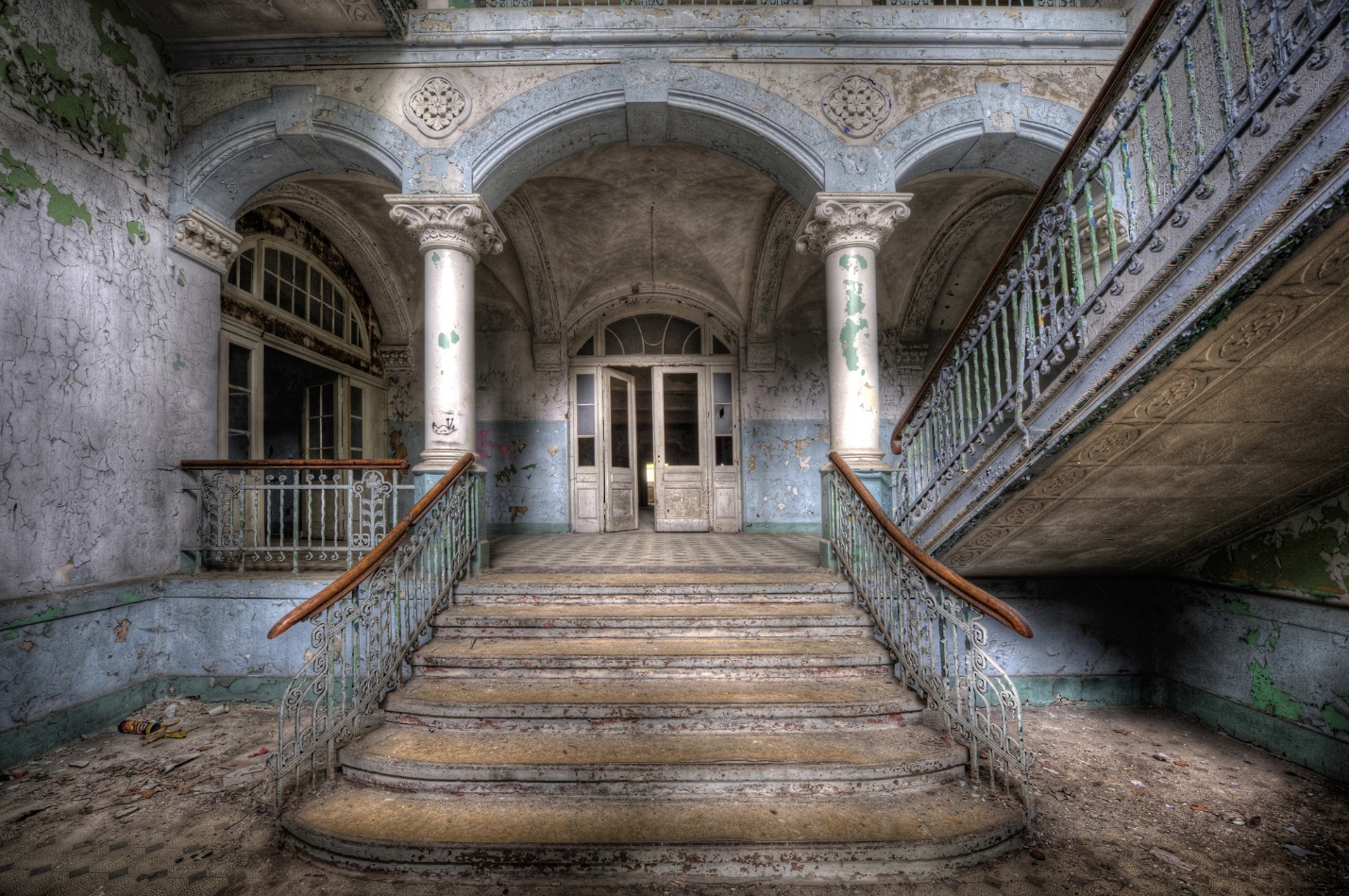 BP 207
BP 207
The key to life is simple.
You must only solve two problems during your years on this planet: how to fill the emptiness in your soul and how to get rid of your badness, shame, guilt. This post will address an aspect of the first problem—filling the emptiness that is the baseline position of every human.
Yes, you are born hungry, empty, and are driven to feed your desires. The goal of life is not to decrease or extinguish your desire. The aim of life is to search for what will ultimately satisfy your deepest longings that often cannot even be put into words. Everyone is seeking for the food that will satisfy that most primitive but majestic of hungers.
Jesus often addressed the topic of how we humans attempt to satisfy our inborn cravings. In Luke 12:13-21 Jesus comments about the utter foolishness of coveting and collecting material wealth as a means to fulfill our lives. When other affections become prominent in our lives, we often chase them at the expense of being rich in our relationship with God. Here is what Jesus taught in Luke 12:
“Someone in the crowd said to him, “Teacher, tell my brother to divide the inheritance with me.” But he said to him, “Man, who made me a judge or arbitrator over you?” And he said to them, “Take care, and be on your guard against all covetousness, for one’s life does not consist in the abundance of his possessions.” And he told them a parable, saying, “The land of a rich man produced plentifully, and he thought to himself, ‘What shall I do, for I have nowhere to store my crops?’ And he said, ‘I will do this: I will tear down my barns and build larger ones, and there I will store all my grain and my goods. And I will say to my soul, “Soul, you have ample goods laid up for many years; relax, eat, drink, be merry.”’ But God said to him, ‘Fool! This night your soul is required of you, and the things you have prepared, whose will they be?’ So is the one who lays up treasure for himself and is not rich toward God.”
Jesus appears to be saying here that if we seek for the gratification of our deepest desires by accumulating wealth (whatever form that “wealth” takes in your heart), we will foolishly forget about more important things like our mortality (and immortality) and being rich toward God.
I recently visited a wealthy man’s summer house where I witnessed opulence that did not God-honoring but very self-oriented. Let’s briefly look at his story. . .
Cornelius Vanderbilt II was born in 1843 into a very wealthy family whose financial abundance was built on the back of a railroad empire. Two facts to know about this man are that he was a Sunday School teacher and a workaholic. Early on in his journey when he was a young man, he possibly remembered God and wanted to live for him, but if such was the case, he seemed to lose his way after he began to acquire massive wealth that led him to build two outward showcases of his material prosperity. Do you remember the rich man in Luke 12?
First, Cornelius purchased all the property on the Fifth Avenue block in Manhattan, New York City, and built a huge house. The Vanderbilt mansion remains the most massive private residence ever built in New York City. Either Cornelius or his wife, Alice, were driven by a desire to build the biggest house in Manhattan—probably both of them. Alice especially seemed to be competing with her sister-in-law, Alva, who also had a huge house in the area.

Note that Alice, too, had been a Sunday School teacher with her husband in her younger years.
The Manhattan house, constructed in 1883, was six stories high and had 130 rooms! Cornelius hired a French design firm to decorate his home which contained many pieces imported from Europe. Some of the rooms included a five-story stone entrance hall, a two-story ballroom, and a two-story dining room. Wow!
Some critics of the mansion declared that the behemoth was a “humorless monument to hubris” and an example of the “conspicuous consumption” that was a hallmark of The Gilded Age (approximately 1880-1910) in the era when America became a World Industrial Power.
This humongous house arose from the imagination of a humble Sunday School teacher.
The Vanderbilt mansion that was such a staggering symbol of power and wealth was demolished 43 years after it was bult only to be replaced by a department store! Talk about a fleeting pleasure.
 Thirteen years after the Manhattan house had been constructed, Cornelius also designed and built a summer home in the Newport, Rhode Island area known as The Breakers (in honor of the waves that could be seen breaking from the windows of the mansion). He tore down the previous summer house, a wooden cottage, that had been ravaged by a fire, replacing it with a massive mansion of stone and steel.
Thirteen years after the Manhattan house had been constructed, Cornelius also designed and built a summer home in the Newport, Rhode Island area known as The Breakers (in honor of the waves that could be seen breaking from the windows of the mansion). He tore down the previous summer house, a wooden cottage, that had been ravaged by a fire, replacing it with a massive mansion of stone and steel.
Fearing another fire, he instructed his famous contractor to make it fireproof. The boilers were buried under ground away from the mansion and the kitchen was built on the side of the house to reduce the chance of any fire impacting the living area.
Cornelius seemed so alert to the possibility of physical death but seemed to have no regard for his spiritual life.

The Vanderbilt retreat by the sea was designed in the spirit of an Italian Renaissance villa and a Parisian opera house. One of the highlights of the mansion was a Great Hall designed to imitate an open-air courtyard. The house contained 125,000 square feet and rose four stories high beside the sea. Baccarat crystal, gold leaf, beautiful mosaics, and even platinum decorated the summer house. Forty servants lived in the top two floors of the house.
All of this majestic opulence, once again, came from the heart of a Sunday School teacher.
Sadly, Cornelius the Sunday School teacher did not enjoy the beauty and comfort of The Breakers for long. He resided at the retreat by the sea during the summer of 1895, but then suffered a stroke the following year at the age of 52. Confined to a wheelchair, he did not return to the summer house. Three years later he awoke his wife in the middle of the night and told her he was dying. He was not wrong. That very night he passed away of a hemorrhagic stroke.
I am not here to judge Cornelius Vanderbilt II. In fact, as I made my way through his summer home, I felt a deep sadness for him. Somewhere along the way, he had lost his Sunday School message about the kingdom of God and had succumbed to the dangerous lust of building his own kingdom. He seemed to possess so much but have so little. He allowed his desire for God and for eternal realities to be eclipsed by the deadly idol of earthly, material things.
“Do not love the world or the things in the world. If anyone loves the world, the love of the Father is not in him. For all that is in the world—the desires of the flesh and the desires of the eyes and pride of life[c]—is not from the Father but is from the world. And the world is passing away along with its desires, but whoever does the will of God abides forever” ~ 1 John 2:15ff.
Tragically, it appears that the Sunday School teacher lost his way during life’s journey and never found God’s true north again.
Cornelius’ son, Cornelius III, described his father as a “joyless man who lived only for work.” One of the friends of Cornelius II commented that he “never recalled seeing him smile.”
Indeed, joy flees from us if we are consumed by earthly desires and lusts that tear us away from our deepest desire, namely, a relationship with the God of the universe. What is the old adage? “No Jesus and no peace. Know Jesus and know peace.” I think it is also very true that “No Jesus and no joy. Know Jesus and know joy.”
My singular challenge from the life of Cornelius Vanderbilt II for you today is to make sure you seek first the kingdom of God and His righteousness. Don’t let anything intervene between you and a growing love for your Savior, Jesus. Idols will fight to steal, kill, and destroy you and the great purpose of your life. Count on it. Prophesy it.
If you live your life passively, valuing whatever catches your eye, you will be consumed by love for the world. As you may remember, love for the world is natural in us fallen creatures. Accordingly, we must intentionally choose Jesus every day and the unseen things of heaven. We must practice fixing our eyes on Him.

After all, even Sunday School teachers lose their way and forget God. They tear down small wooden barns and build huge steel ones all the while forgetting that they may die tonight, and their souls will be required of them.
Be careful what you love in this world. Yes, God made everything for you to enjoy, but not to love with the love that is only meant for Him and then for humans around you.
Practice His presence. Rehearse His love for you. The mansions of this world (whatever those might be for you) will, like Cornelius’ massive house which was more of a mausoleum, be torn down, but living in God’s mansion will be a forever home for you in His presence.
Don’t lose your way. Life may feel short, but it has many years during which you could fall away from your greatest desire and love.
Choose Jesus. Every day, every moment.
If then you have been raised with Christ, seek the things that are above, where Christ is, seated at the right hand of God. Set your minds on things that are above, not on things that are on earth. For you have died, and your life is hidden with Christ in God. When Christ who is your life appears, then you also will appear with him in glory. Put to death therefore what is earthly in you: sexual immorality, impurity, passion, evil desire, and covetousness, which is idolatry” ~ Colossians 3:1-5a

